by Ulrica on 2014 May 12 18:39
In less than two weeks the second seminar in the Glocal Classroom project is kicking off. This time in Guelph, Canada, under the title “Communication for Social and Environmental Change.” The programme will include speakers, panel discussions, radio broadcasts, student posters and interactions among academics and practitioners for critical reflection on communication and media for social and environmental change.
Themes that will be discussed include:
- Community engagement in rural and remote areas of Canada
- Participatory video and filmmaking
- Journalism within the community and international development context
- Community informatics and the use of information and communication technologies for teaching and learning globally
Have a look at the full programme here.
When? 22-23 May 2014
Where? Live-streamed at www.glocalclassroom.wordpress.com/video/
by Ulrica on 2014 April 25 11:08
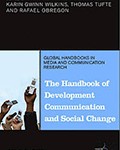 ”The Handbook of Development Communication and Social Change” – previously mentioned here – is now out. Ørecomm co-director Thomas Tufte, Professor Karin Gwinn Wilkins, University of Texas, and Rafael Obregon, Chief of Communication for Development at UNICEF New York – three high profiles in the field – have made an impressive effort to provide an up-to-date overview of the emerging challenges within the field of the communication for development.
”The Handbook of Development Communication and Social Change” – previously mentioned here – is now out. Ørecomm co-director Thomas Tufte, Professor Karin Gwinn Wilkins, University of Texas, and Rafael Obregon, Chief of Communication for Development at UNICEF New York – three high profiles in the field – have made an impressive effort to provide an up-to-date overview of the emerging challenges within the field of the communication for development.
The editors have approached the task through three different work streams. The first one dealing with the more theoretical side of development studies, the second exploring the strategic use of C4D in big aid organizations such as UNICEF, and the third taking a closer look at C4D from an activist point of view.
Although many books on communication for development have been published, this is one of the first that allows plenty of space for theorizing around activism and C4D.
”We are very happy about being able to integrate an extensive section on activism and communication for development in this book. It’s important to recognize these activities in the student literature, side by side with more traditional approaches to C4D,” says Thomas Tufte.
The book includes contributions from some of the gran old men and women in the field, such as John Downing and Rosa Maria Alfaro, as well as chapters written by the younger generation, for example the ”Video for Change” and ”Youth-Generated Media” chapters by Tina Askanius and Joe F. Khalil respectively.
“We are very pleased with the mix of contributors we have succeeded with in the book. It includes chapters on classical disciplines, such as community radio, but also moves into newer areas, for example the role of entrepreneurship in C4D and development work,” Thomas continues.
The book is targeted to media and communication students on master’s level, but can give practical and conceptual guidance to anyone engaged in the struggle for social justice around the world.
Don’t miss the launch of the book at the Voice and Matter Conference, taking place 17-20 September 2014!
Buy the book here.
by Ulrica on 2014 April 23 17:21
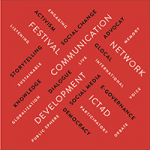 Voice and Matter is the fourth annual Communication for Development conference arranged by Ørecomm, this year merged with Roskilde University’s biannual scientific conference, Sunrise.
Voice and Matter is the fourth annual Communication for Development conference arranged by Ørecomm, this year merged with Roskilde University’s biannual scientific conference, Sunrise.
The conference aims to explore the dynamic relationship – and possible convergence – between voice and matter in the context of communication for development theory and practice.
When? 17-20 September 2014
Where? Roskilde University (Denmark) & Malmö University (Sweden).
Ørecomm invites researchers, students, practitioners, authors, artists and filmmakers to submit abstracts in the following work streams:
- New Social Actors and ICT for Development. The technocentric concept of ICT4D raises questions on the power over and use of technology. Who are the new social actors and new social movements? How do they pursue their goals using ICTs? This session invites theoretical and empirical reflections, uncovering emerging perspectives on technology, voice and matter.
- ICT4D Without ICT4G? As photos of all-male ICT4D conference panels and technology fairs dominated by men are circulated on social networks, questions about gender issues in ICT4D research and practice are more pressing than ever. This panel invites theoretical reflections and innovative case studies on gender, power and the future of ICT4D.
- The Present and Future of Development Journalism
International development journalism is exploring new avenues to connect with different audiences and to communicate social change. This panel highlights new innovative approaches as well as discussing the challenges and limitations in an age where ‘everybody is a broadcaster’.
- Fiction Matters Recent decades have in many parts of the world brought new genres of fiction to critical acclaim. New authors engage with movement, migration and change in ways that are debated globally. This panel will explore fiction, that in new ways engage with the relation between the social and the global, and between voice and matter.
- Histories of Diaspora Nation-states and national mentalities have shaped societies we live in through reductive classifications. New methods now move beyond this logic, allowing for improved understanding of the changing role of the state over time, and for new transcultural encounters. This panel explores methods in approaching the diaspora context in space and time.
Deadlines
- Submission of abstracts are accepted until 23 May 2014, oo:oo (CET)
- Accepted abstracts will be announced individually by 6 June 2014
Read the full call for abstracts here.
For more information about the conference, look here.
We are looking forward to hearing from you!
by Ulrica on 2014 April 22 11:47
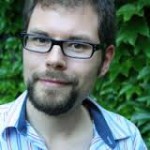 This is the topic of a seminar that will be held by Ørecomm participant Tobias Denskus on Wednesday, 23 April 2014, 10-12 am.
This is the topic of a seminar that will be held by Ørecomm participant Tobias Denskus on Wednesday, 23 April 2014, 10-12 am.
“While undergoing visible changes at the surface – from celebrity humanitarianism to micro loans or voluntourism – international development, or more precisely: the growing professional aid industry, is also a space for traditional rituals, performances and illusions about social change. Based on organisational ethnographic fieldwork in bureaucratic aid organisations, at global conferences and localised workshops this talk will try to link old anthropological metaphors to the emerging ritual economy around ‘helping the poor’. The guiding question for the seminar will be: ‘What is development’s interpretation of reflexive capitalism in the 21st century?’”
Read more about the key issues of the seminar at Tobias’ blog Aidnography.
Where?
- Aktersalongen, Kranen room E203, Östra Varvsgatan 11A, Malmö
by Ulrica on 2014 April 10 17:14
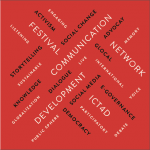 The previously mentioned GoComm project is now gearing up for the first workshop. Ørecomm is looking for start-ups, social enterprises, organisations and decision makers in the Öresund region for this interesting collaboration.
The previously mentioned GoComm project is now gearing up for the first workshop. Ørecomm is looking for start-ups, social enterprises, organisations and decision makers in the Öresund region for this interesting collaboration.
Read more about the workshop here, and help us share with friends, family and colleagues!
by Ulrica on 2014 April 8 15:47
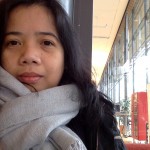 Tomorrow, 9 April 2014, at 10-12 am, Erliza Lopez Pedersen, Ørecomm’s new PhD candidate in Communication for Development will be introducing her research at a public seminar at the School of Arts and Communication (K3) at Malmö University.
Tomorrow, 9 April 2014, at 10-12 am, Erliza Lopez Pedersen, Ørecomm’s new PhD candidate in Communication for Development will be introducing her research at a public seminar at the School of Arts and Communication (K3) at Malmö University.
Her research explores transnationalism, cultural citizenship and the media, with a focus on the Filipino diaspora in the five Nordic countries and Spain.
Where?
- Aktersalongen, Kranen room E203, Östra Varvsgatan 11A, Malmö
- Live-streamed on orecomm.net
by Ulrica on 2014 March 19 20:31
The Glocal Classroom is one of Ørecomm‘s more recently started projects. Funded by Malmö University and STINT it takes on the subject of web-based pedagogy and interaction.
Ørecomm co-director Oscar Hemer and Mikael Rundberg, teachers at the ComDev master’s programme at Malmö University, are two of the key persons behind the project. With more than ten years’ experience of mediating campus based seminars to online students, they have set out to share and develop these experiences with three partner universities, through a world series of seminars that can be followed either onsite or online.
Stellenbosch Seboka – 25-26 March
The first seminar is hosted by Stellenbosch University, South Africa, and takes place 25-26 March 2014. The seminar holds the theme ‘Transforming Education Through Technological Innovation’ and will focus on the application of ICTs in teaching and learning.
Read more about the seminar and how to attend online here.
ComDev Seminar at RLabs – 28 March
While in South Africa, the Malmö University ComDev team is also taking the opportunity to organise a seminar in collaboration with RLabs in Capetown. RLabs was founded in 2008 as an environment for community driven innovation and reconstruction, empowering people to make a difference in the lives of others.
The programme includes speakers such as Marlon Parker – founder of RLabs, entrepreneur and advocate for using Technology for Social Good, and Jillian Reilly – consultant, writer and public speaker focusing on developing world issues.
The seminar takes place on 28 March 2014, and will be live-streamed. For more information and the full programme, look here.
This is not to be missed!
Read more about the The Glocal Classroom here.
by Ulrica on 2014 February 27 11:22
This autumn, several of our Ørecomm participants will be teaching on a brand new course in Advances in Communication for Development: Social Action, Planning and Evaluation offered at Malmö University. The course responds to the needs of ComDev graduates that have requested a deeper level of study in this field, as well as development professionals seeking group work and peer learning, hands-on participation, self-reflection, and critical analysis.
The course includes the following modules:
-
Communicating and Planning Social Action (7.5 ects)
Explores social action as an agenda setting process offering specific tools to assess and critically analyse different communication strategies for social change including a breakdown of behaviour change theories.
-
Evaluating Social Action (7.5 ects)
Focuses on monitoring and evaluation of ComDev interventions, including critical engagement with a range of different approaches and analytical methods. Students will apply the knowledge and skills they acquire to the evaluation of both their own and others communication initiatives.
Entry requirements
30 credits on advanced level in Communication for Development, Media- and Communication Studies, Development Studies or other Social Science discipline. English B.
Study Form
Flexible 50% distance, with 2 compulsory meetings.
Application will open on 15 March on www.antagning.se
by Ulrica on 2014 February 17 15:52
Social Media Week in Copenhagen kicked off today, and we are busily preparing for our first event tomorrow, 18 February at 9.30 am.
For an introduction to both our events – do take a moment and read Ørecomm participant Tobias Denkus’ excellent blog post ‘Getting Ready for #SMWCPH’.
Both events will be live-streamed on www.orecomm.net (main page).
For more details and event descriptions, also read the previously posted item ‘Ørecomm at Social Media Week’.
See you tomorrow!
by Ulrica on 2014 February 13 12:58
We are happy to invite you to a guest lecture with Primus Tazanu next Tuesday, 18 February, 6-8 pm (CET).
The lecture takes place at Radiostationen at Malmö University, but will also be live streamed at the Ørecomm website.
The presentation is based on multi-sited ethnographic fieldwork conducted among Cameroonians in Freiburg (Germany) and Buea (Cameroon) about the use and meaning of the mobile phone and internet in maintaining transnational family and friendship relationships. Most theoretical literature states that these tools of sociality strengthen cross-border social ties and contacts as they make partners readily available and reachable. In fact, my point of departure for the study was to uncover the positive impact of these media in nurturing the transnational social bonds.
– Primus Tazanu
Learn more about his findings on Tuesday night.
Primus Tazanu is an independent researcher based in Humlebæk, Denmark. He holds a PhD in social and cultural anthropology from the University of Freiburg, Germany since 2011, and was recently a postdoctoral fellow in the Universities of Freiburg and Buea. He has been a guest lecturer at the Universities of Basel, Freiburg and Buea.
Welcome!
 ”The Handbook of Development Communication and Social Change” – previously mentioned
”The Handbook of Development Communication and Social Change” – previously mentioned 
 This is the topic of a seminar that will be held by Ørecomm participant
This is the topic of a seminar that will be held by Ørecomm participant 
 Tomorrow, 9 April 2014, at 10-12 am, Erliza Lopez Pedersen, Ørecomm’s new PhD candidate in Communication for Development will be introducing her research at a public seminar at the School of Arts and Communication (K3) at Malmö University.
Tomorrow, 9 April 2014, at 10-12 am, Erliza Lopez Pedersen, Ørecomm’s new PhD candidate in Communication for Development will be introducing her research at a public seminar at the School of Arts and Communication (K3) at Malmö University. New PhD opportunities at the University of Leicester
New PhD opportunities at the University of Leicester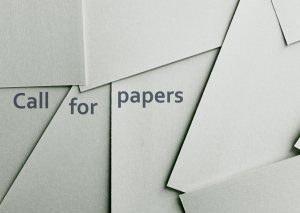 Call for Abstracts: New Directions in Media, Communication and Sociology (NDiMS) Conference
Call for Abstracts: New Directions in Media, Communication and Sociology (NDiMS) Conference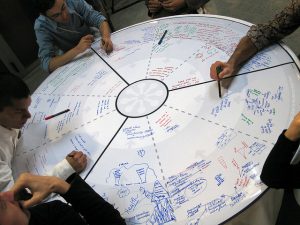 Ørecomm Team to Gather at the University of Coimbra
Ørecomm Team to Gather at the University of Coimbra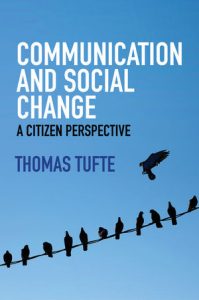 “Communication and Social Change – A Citizen Perspective” Published
“Communication and Social Change – A Citizen Perspective” Published C4D Network to Sum Up Global Communication for Development Practice
C4D Network to Sum Up Global Communication for Development Practice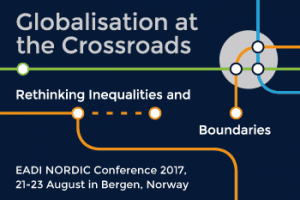 Entering Media and Communication into Development Conferences?
Entering Media and Communication into Development Conferences?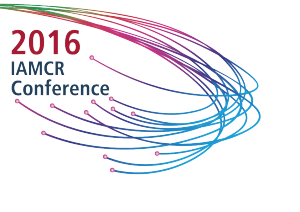 IAMCR Conference 2016: Communication for Development Highlights
IAMCR Conference 2016: Communication for Development Highlights Glocal Classroom Revisited – Storytelling & Social Change Leicester-Malmö
Glocal Classroom Revisited – Storytelling & Social Change Leicester-Malmö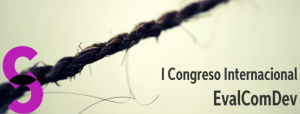 I EvalComDev International Conference: Call for Papers
I EvalComDev International Conference: Call for Papers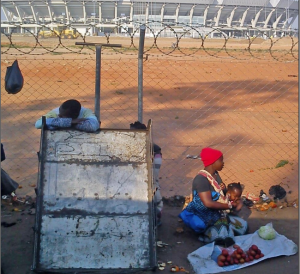 Looking for Media and Communication in Development Conferences: Devres 2016
Looking for Media and Communication in Development Conferences: Devres 2016